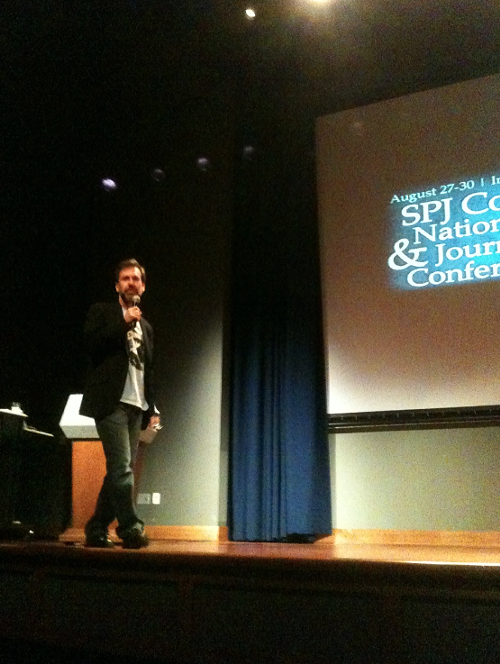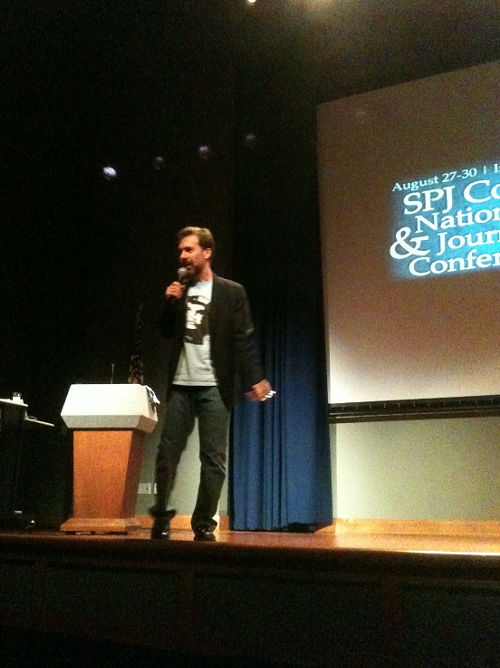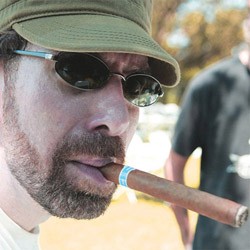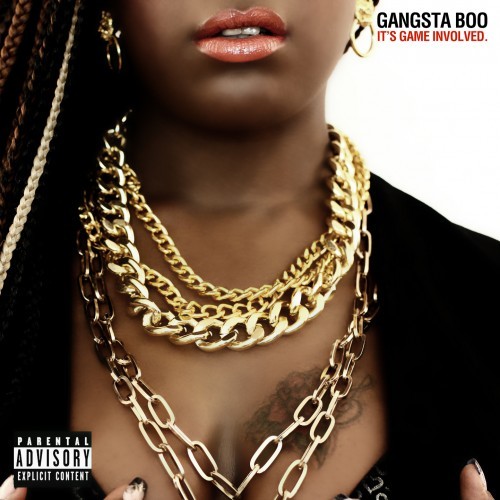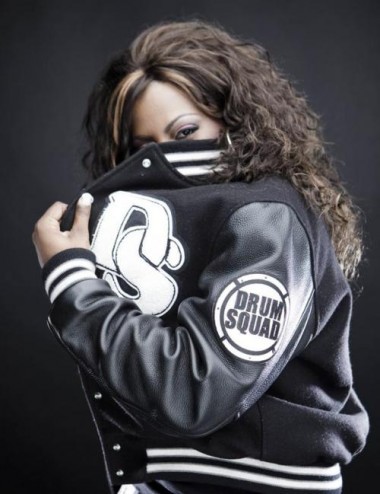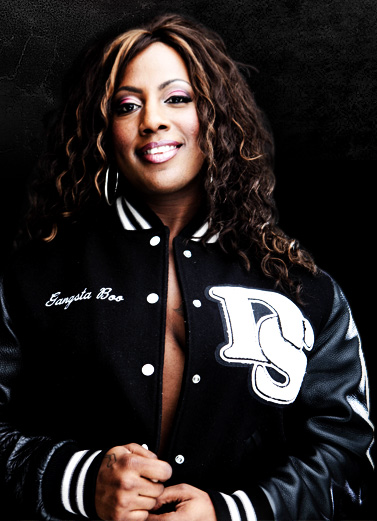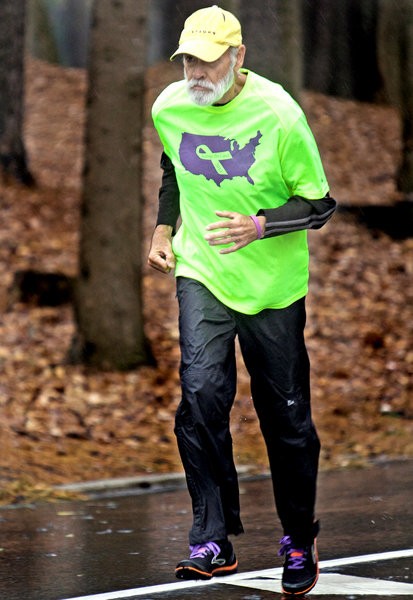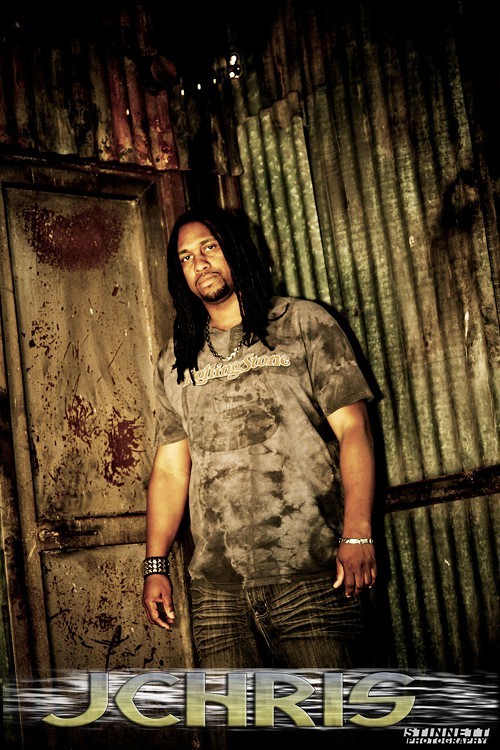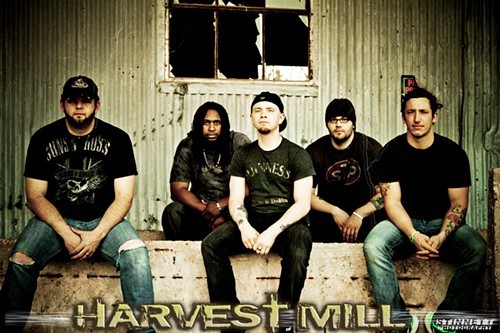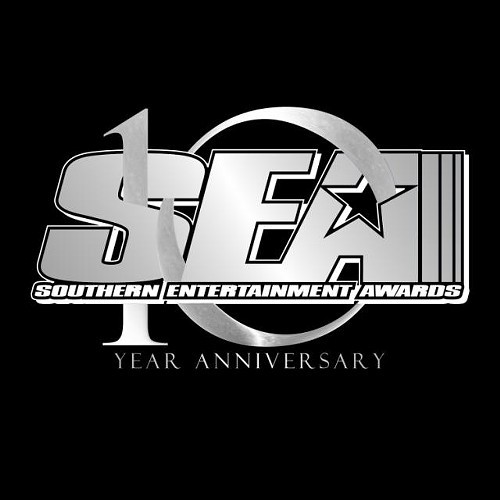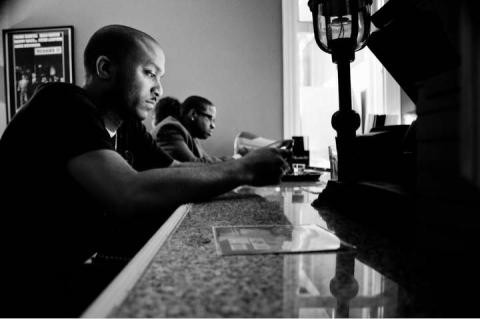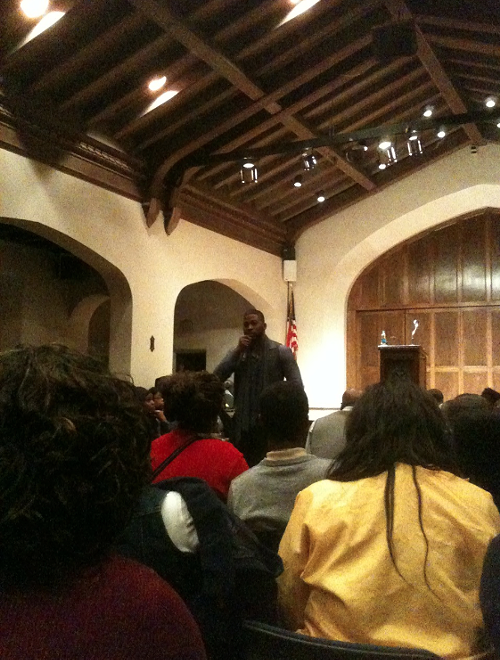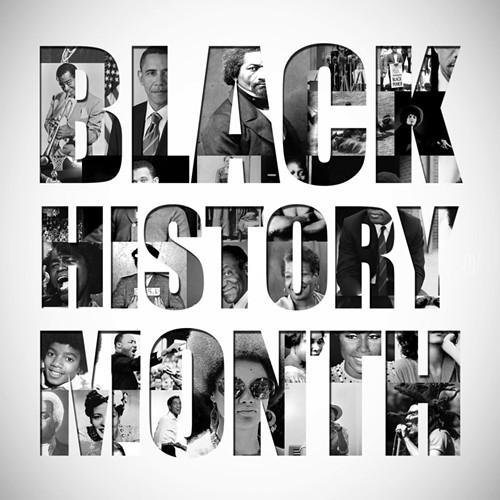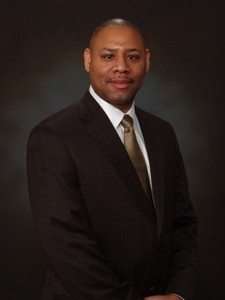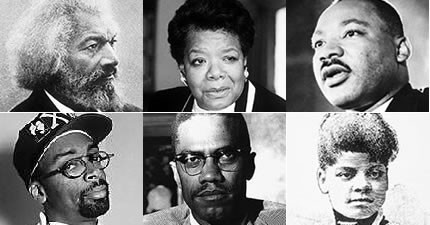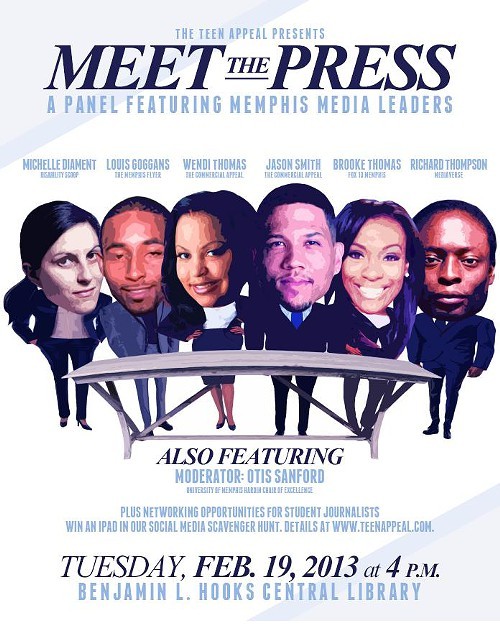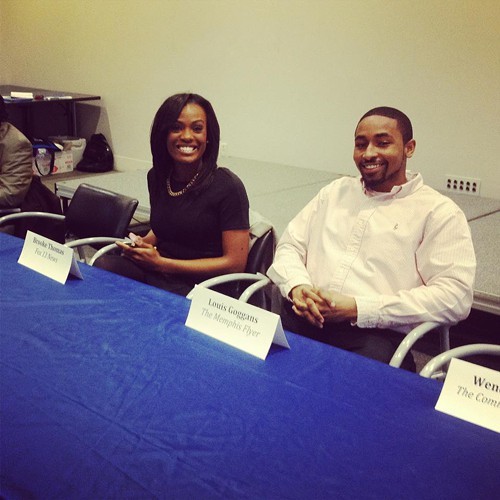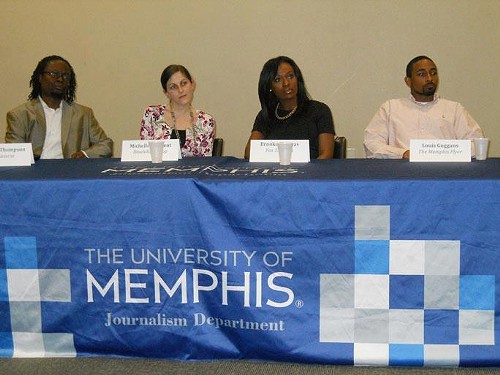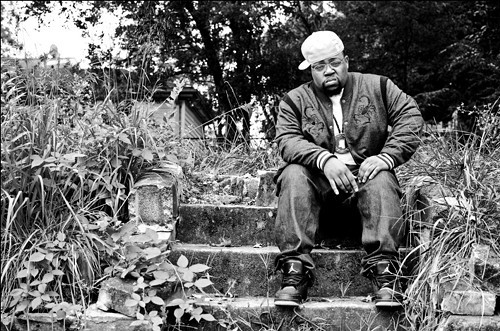
“Bitch, I ain’t no hype man!” Big Sant passionately spits in the beginning of his first verse, as well as on the chorus of “Holdin’ My Nuts,” one of the tracks off his mixtape, MFxOG.
With the recent success of his protégé and fellow-Meridian, Mississippi native, Big K.R.I.T., Big Sant was viewed by those unfamiliar with his musical efforts as nothing more than a hype man for the Def Jam Records-signed artist.
However, Big Sant is far from that. The son of legendary Mississippi Blues singer Patrice Moncell, music runs through his bloodline. He’s personally been trying his hand at music for nearly two decades, but decided to pursue it professionally around 2005.
In late 2012, he dropped MFxOG, a 13-track mixtape fit to be released as an album. He’s currently headlining his own tour, “MFxOG,” which also features Kamikaze a.k.a. Mr. Franklin, who was once part of the group Crooked Lettaz, along with successful artist and producer David Banner.
First introduced to Big Sant on the song “Return of 4eva” off of Big K.R.I.T.’s mixtape, K.R.I.T. Wuz Here, I quickly took a liking to his aggressive, but lyrical and pimpish flow. I had the opportunity to speak with Big Sant about his unique style, growing up in a state known for its racist past, balancing fatherhood with his rap career, a future release from The Alumni (a group consisting of him and Big K.R.I.T.), and he even shared something with me that many people don’t know about him.
Follow Big Sant on Twitter: @BIGSANT
Download his mixtape: MFxOG
What inspired you to pursue music as a full-time profession rather than a hobby?
Everything is a hobby until you start making money off of it. My whole life is surrounded by music. My mother is a singer. I grew up in the church. Music is my life. It was only natural for me to look for a way to convey my feelings to my peers.
I’ve been rapping for 15 years. I transitioned into doing it professionally in around 2005-2006. That’s when I started doing a lot of shows and things like that.
I became familiar with you initially through your collaborations with Big K.R.I.T. How did you develop a relationship with him?
I’ve known K.R.I.T. since he was 13. When you come from a small city like Meridian, it’s not hard for brothers and sisters to get together. He already knew I rapped. I found out he was rapping and then we started rapping with each other. That was 14 years ago.
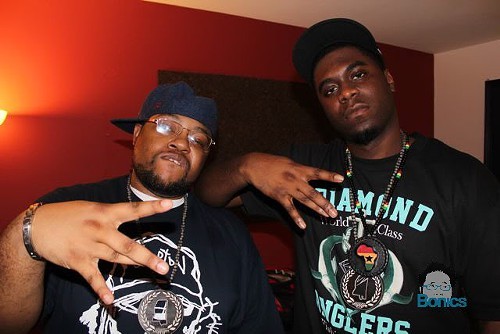
I understand you guys have a group together called The Alumni. Are you two working on any music together currently? Possibly planning a mixtape release?
We know better now, so we’re trying to get the money. The Big K.R.I.T. ticket is really high right now. As far as all the work he’s done, it speaks for itself as far as the value, so we’re trying to raise my value. So when it’s time for us to do a mixtape, album, or whatever we decide to release, we’ll be worth a lot more. Somebody will have to pay us for real. That’s all we’re trying to do is build the demand up, because when we do it, it’s going to be epic.
I’ve heard some of you guys’ music from 2010 to 2011. It reminds me of vintage 8ball & MJG or something of that nature.
That’s what we’re on. We’re still living the glory days. That’s why it’s called the “Return of 4eva.” We didn’t do anything but bring back the stuff that was already here. We just shined the spotlight on the South. That’s all what we want to do is put it down for the South.
I’ve never been to a Big K.R.I.T. show in person but I’ve seen several online. I’ve often noticed you on stage with him as his hype man. However, I also knew you rapped as well. But this has caused many people unfamiliar with your music to get the assumption that all you were was K.R.I.T.’s hype man. But on your mixtape, you show you’re much more than that. Do you think it’s important for you to show people you can hold your own musically aside from collaborating with Big K.R.I.T.?
Definitely and that’s what MFxOG is all about. It’s my own soapbox. Me and K.R.I.T., we never approached it in that fashion. It was just that he had just got a deal. He was going on the road and he was like, ‘There’s a job for you to do and then you know all the songs, so come with me and let’s get out there and get this experience.’ Thank God, I was able to get out there and get the experience myself. You know, a lot of hype men get caught up with the stigma of not being an artist themselves. And that’s what it was all about. That was really kinda his idea. Even while I was out there being a hype man, I was doing my own features and working on my own music. I wasn’t boxed into being a hype man.
Is MFxOG your first mixtape release ever?
Some music that I recorded in 2005 and 2006, I released it in 2007. It was called Top of the Food Chain. I wasn’t in position to push it appropriately, so all I did was drop it online and that was it. I did my shows, but it fizzled out. Now that I know better. That’s why I’m out here doing the MFxOG tour, getting better features, and building relationships with people, so when it’s time for me to record my next project or start talking about getting a deal for an album, I’m more well-versed in the politics of the game now.
On the song, “Cadillac Music” off your mixtape, you reveal that you’re a father. How challenging is it to balance the role of being a father with your rap career?
Well, I’m a single father. I raise my sons by myself. And I have a daughter now too. Like I said on “Live,” it’s just having to explain to them that I have to leave and all that stuff. I still have to go to work. It’s just that I’m not going to work everyday like a regular parent would. The 40 hours that a person [works] all week long, I do it like on the weekend. I do it from Friday to Sunday and then I’m back. It’s all good. Everybody’s with it. My son, he’s a little older now. He’s six, so he can dig it…when I gotta go to work it ain’t no big deal.
After listening to “Cadillac Music,” I became curious if you’re a big Cadillac fan. Is that your favorite automobile?
A Cadillac is like the first luxury vehicle that somebody from the ghetto would’ve saw, somebody from the country would’ve saw, because there ain’t no benzes and BMWs and shit like that in the hood. But you know, the Cadillac is like a black man’s BMW. It’s easy to obtain. All my uncles had Cadillacs. Pimps had Cadillacs.
Are you a big car fan or car collector?
I recently got into the car culture a few years ago after hanging out with Curren$y and it was like, ‘aww aite, I understand now.’ I used to not bother with things I couldn’t get but now, we’re out here, we’re working, we can go buy things now, you know, I’m real interested in the car culture.
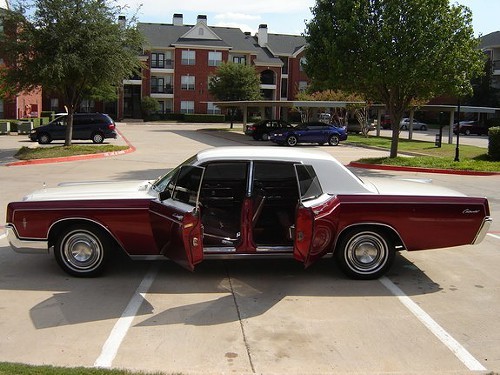
Do you have a dream car?
I want a ‘66 Lincoln Continental. It’s just clean man. It’s the one that homeboy drove on Entourage. It’s before suicide doors and the doors still open up that way. That bitch is just clean. It’s long. It’s a man’s car.
Listening to your mixtape and some of your collaborations with the likes of Big K.R.I.T., Fiend, Smoke Dza, and Corner Boy P., to me, you give off a vibe similar to the late Pimp C but in a somewhat more lyrical fashion. How did you develop the style that you have, because it doesn’t sound like any other rap artist out right now?
I just hear the beat and I try to out-perform the people around me. Whether they’re my friends or whether I just met them, I want to earn my keep. I don’t want to just come in your house and sit on your couch and let that be it. Ima come in, I’m fixin’ to vacuum, I’m fixin’ to wash dishes around this bitch. I’m fixin’ to go to work. That’s just the way I roll. I’m aggressive. When I walk into the room, I make noise. I want my personality to have a presence in my music.
What inspires you when you’re creating music?
It could just be the day’s events. I usually go with my first or second thought when I hear a beat. Whatever sticks to me first and whatever feels right, I write about that. Life experiences. My friends’ life experiences. Things like that. I like to keep it natural. I’m not gonna get on there and do a whole lot of lying about nothing.
Who are some of your musical influences and inspirations—past and present?
Scarface. I listen to a lot of ‘Face man. UGK of course. 8Ball and MJG, Ludacris, T.I., [Big] K.R.I.T. A lot of my peers like Smoke Dza. Fiend is a real mentor. Killer Mike. These are the people that I look to for inspiration when it’s time to get out here and write ghetto rap songs.
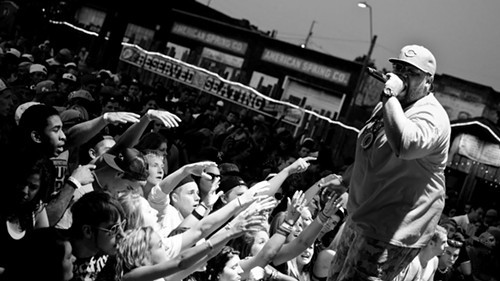
I saw in an interview that among the people you would like to work with are Three 6 Mafia and 8 ball & MJG, which are both groups from Memphis. Are you a big fan of the Memphis music scene?
Absolutely, because all that is right around Mississippi. Mississippi, we don’t have a real sound. If you’re from Mississippi, you gravitate toward north, south, east or west. Either you’re listening to a whole lot of Texas music, or a whole lot of Louisiana music, or you done went East and you’re listening to a whole lot of Atlanta music, or what’s right above you in Tennessee. So all those people were right around what I had going on.
Matter of fact on the song “Everythangs Workin’,” Project Pat was supposed to be on it but we could never get it together. I wrote the song with him in mind. I called and tried to get the verse first, and he said yeah, and then I wrote the song. That’s why it’s got the Playa Fly mention in it. That’s why the hook is real Project Pat-ish. But we just couldn’t get it all together. But he gave me the blessings to use his style on the hook, so it’s all good. I ain’t just out here perpetrating.
I understand you’re from Meridian, Mississippi. How was it growing up as an African-American in a state with such a racist past?
When you live in it, it’s home. It takes other people on the outside to tell you, ‘Yo, where you live is crazy.’ But I’ve never seen shit. When I was going to school, I had white friends and everything like that. Coming from me personally, the perception is what’s all messed up. It’s the history of everything that’s all messed up. It’s not as bad as people make it out to be [and] that’s why we’re always repping Mississippi so hard. You know, the same shit goes on in Alabama, Georgia, South Carolina, Florida. You know racism is everywhere, especially in the South. But I haven’t had anybody run up on me sideways and act crazy as far as no racism is concerned in Mississippi.
What’s something that the average person or fan doesn’t know about Big Sant that you think would be cool to share with readers?
Me and my crew, we’re some hardcore gamers man. We be on X-box Live getting it on. Right now, we’re on that Call of Duty: Black Ops 2. I’m trying to set up a match between us and all my Taylor Gang homeboys. Sledgren and Cardo, because they’re always talking shit, but I’m trying to set up something real and get some sponsors involved and donate the money to charity or something. I just wanna whoop they ass.
No NBA 2k for Big Sant?
I ain’t got the patience for it. I rather get in there and commit my random acts of violence and get off. I ain’t here for 82 games.
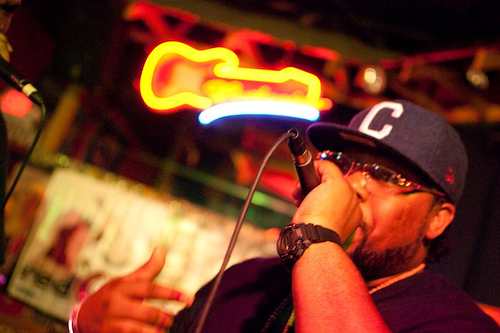
How has the experience been thus far with the MFxOG tour?
It’s great man. I’m going back to cities that I’ve already been through with K.R.I.T. Like with the “Live From The Underground” tour, I was the opening act. We haven’t done the whole hype man thing in over a year. Going back and seeing the same people that’s down to come to just a Big Sant show, it’s all love. I can’t describe it in words.
What’s next for you? Any new mixtapes or other endeavors in the works that you would like readers to know about?
I’m working on something that I’m gonna drop for the summer. Me and K.R.I.T. are talking about doing the Drinker’s Club tour. Ain’t nothing in stone yet, but that’s what we’re debating on right now. We all out here working.
Are you entertaining any major labels right now?
If the money’s right and it’s an obligation that I can really fulfill, I ain’t got no problem with it. You hit a ceiling with being independent. Whatever I can do to advance and make more money and do more business, I’m always open for it.
Any thing else you want to add?
Everything is good. Life is good. Thank God.
Follow me on Twitter: @Lou4President
Friend me on Facebook: Louis Goggans
